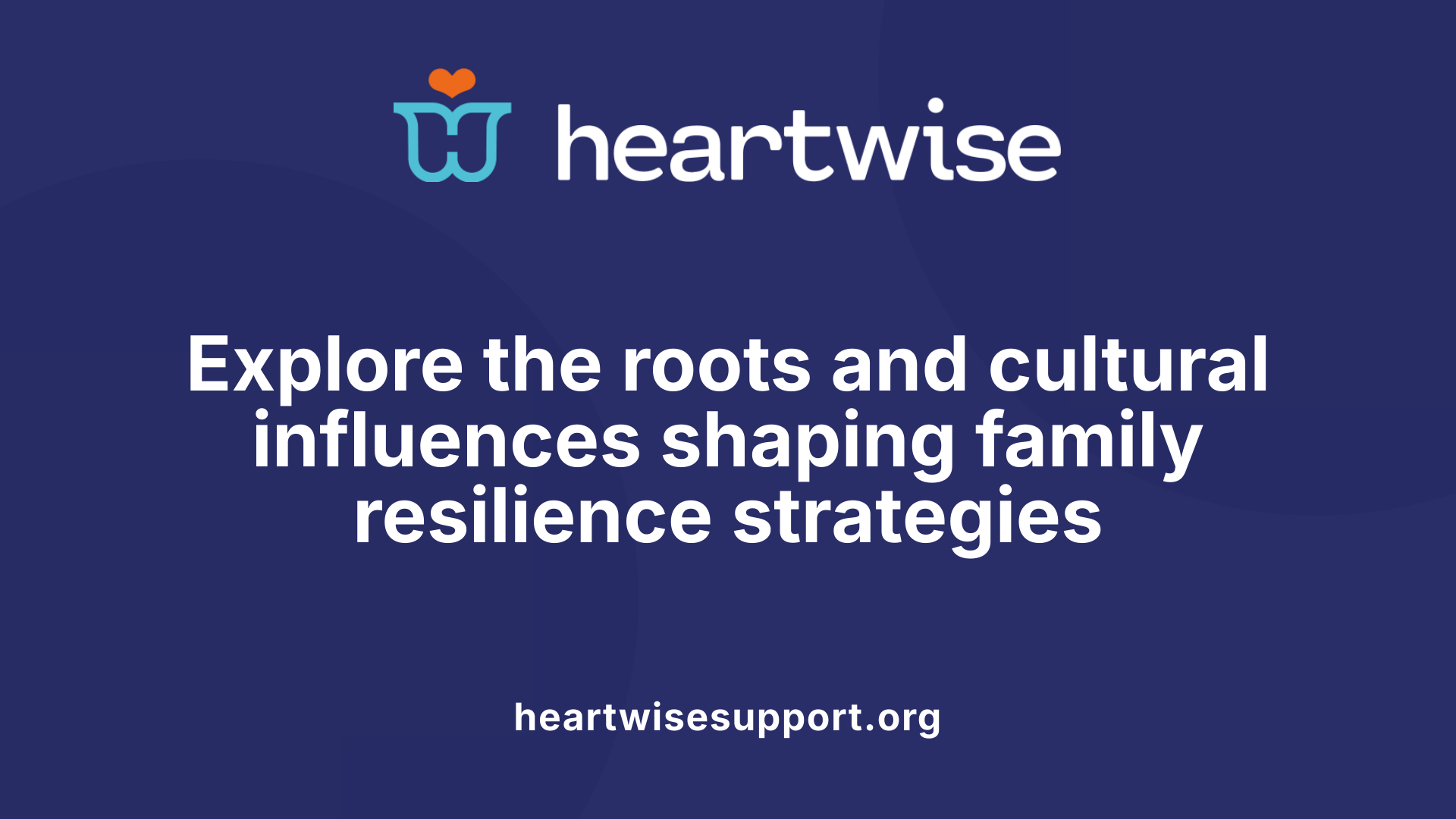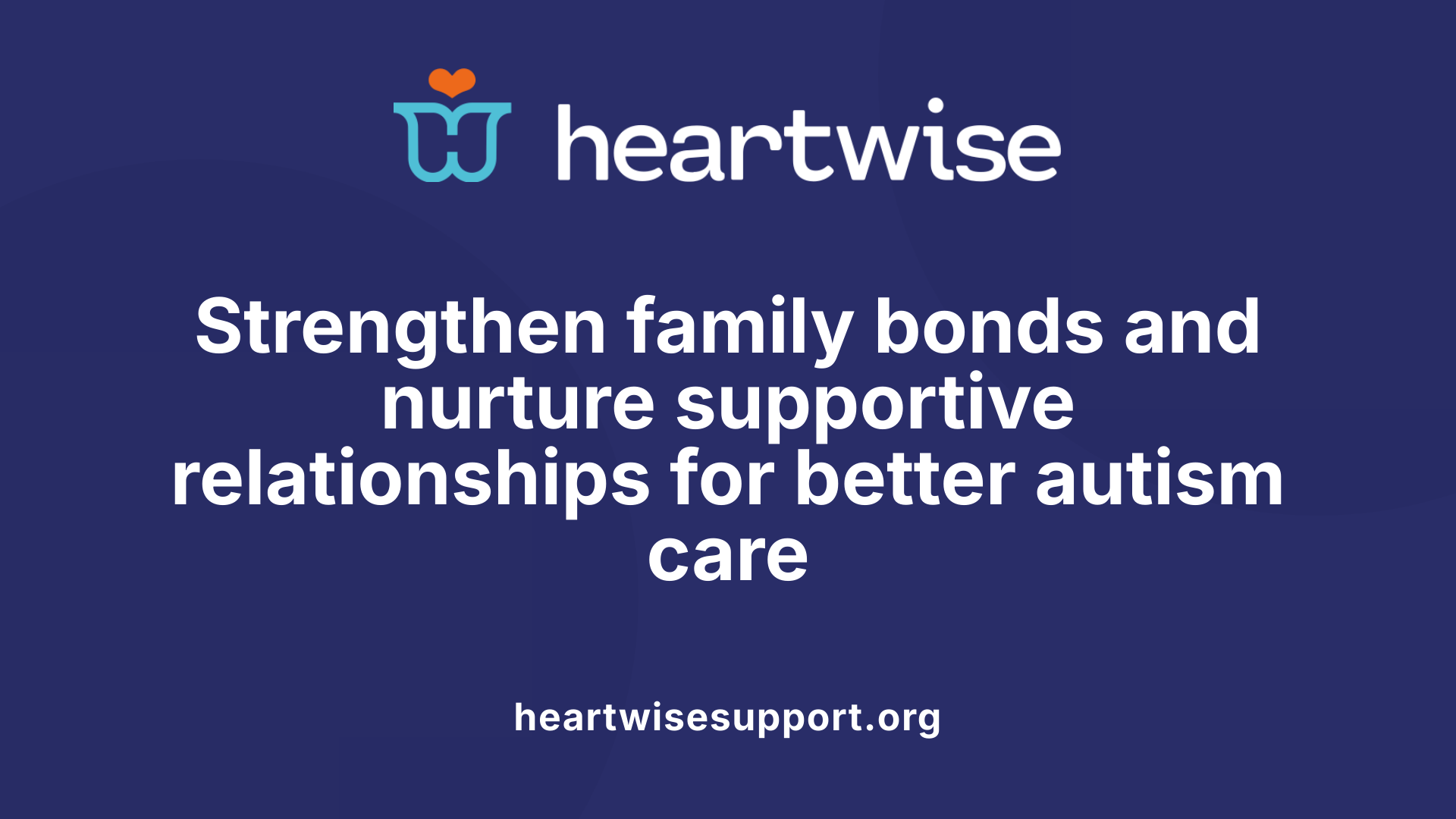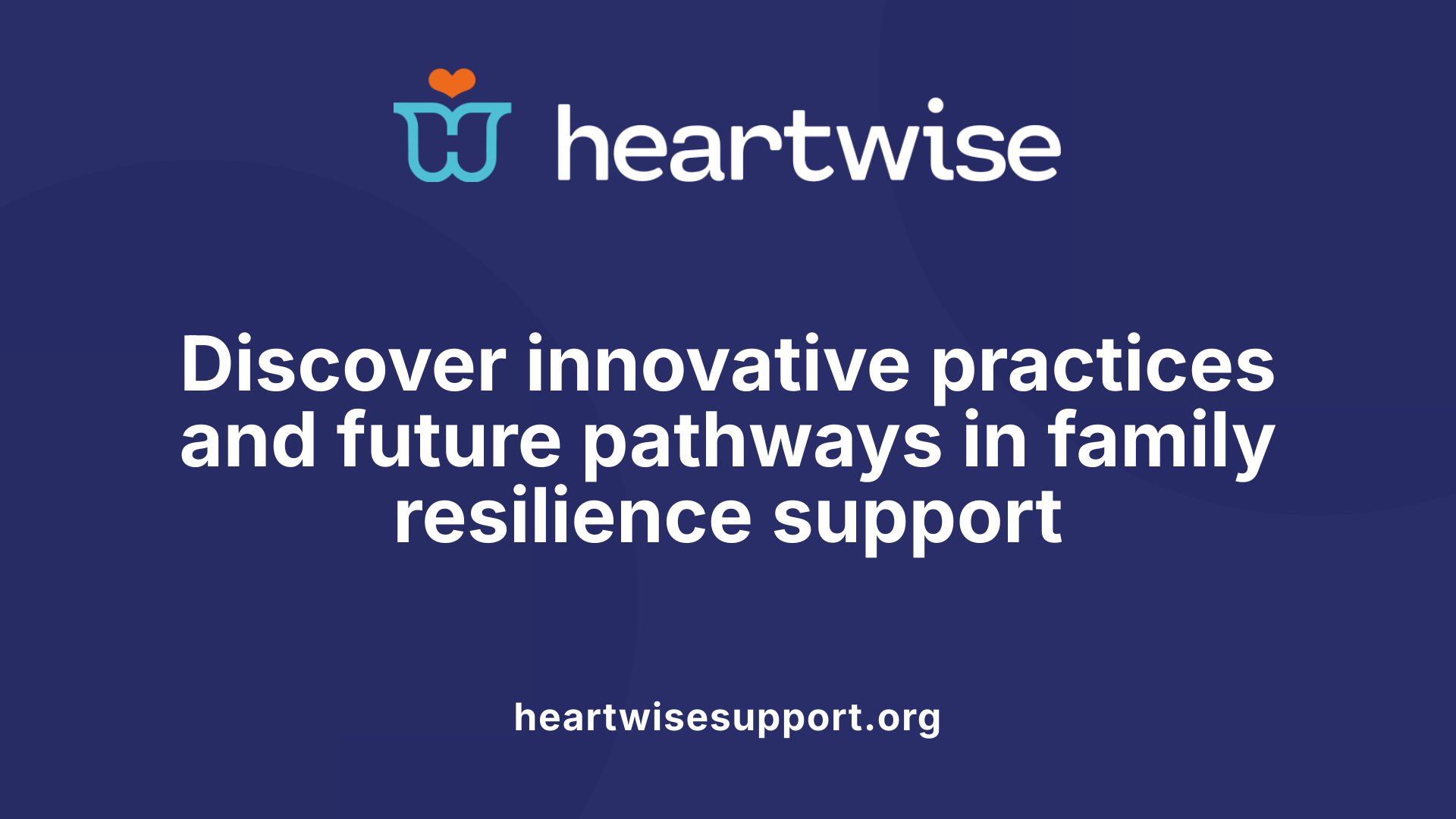Understanding the Importance of Resilience in Autism Care
Caring for children with autism spectrum disorder (ASD) presents unique challenges that can significantly impact family dynamics and well-being. Building resilience within families is essential to navigating these challenges effectively. This article explores the multifaceted nature of family resilience, evidence-based practices, practical strategies, and available resources that empower families to thrive amid adversity.
Theoretical Foundations and Cultural Context of Family Resilience

Resilience in the context of ASD caregiving
Family resilience refers to the capacity of family systems to adapt positively amidst the ongoing challenges associated with raising children with autism spectrum disorder (ASD). It involves positive interactions within the family, acceptance of the child's condition, and expanding social and environmental support networks. For parents, resilience often manifests through moral self-cultivation, embracing their child's uniqueness, taking on multiple roles—such as educators or career planners—and establishing supportive community ties. These strategies help mitigate stress and enhance familial cohesion, which are vital in contexts with limited formal support.
The Resilience Model of Family Stress, Adjustment, and Adaptation
This theoretical framework explains how families respond to stressors like ASD. It emphasizes that resilience results from an interaction between internal family dynamics and external environmental factors. Key components include internal strengths such as hope, optimism, and emotional regulation, as well as external supports like healthcare services and community resources. The model suggests that positive family adjustments depend on balancing risk factors—like societal stigma and service gaps—with protective processes such as effective communication, support-seeking behavior, and cultural acceptance.
Influence of social systems—family, community, and culture—on resilience
Resilience does not develop in isolation; it is deeply embedded within broader social systems that include micro, mezzo, and macro levels. Family units serve as the primary micro-system, where supportive relationships and positive parenting practices foster resilience. The mezzo-system encompasses community supports, adult social networks, and school environments, such as parent groups and special education services, which contribute significantly to family strength.
The macro-system involves societal and cultural factors, including cultural attitudes toward ASD, spiritual beliefs, and national policies. In Chinese contexts, moral self-cultivation and acceptance play a prominent role in resilience-building. Cultural values emphasizing perseverance, filial piety, and community solidarity reinforce family efforts to adapt and thrive despite challenges. Supportive policies, like government schemes for special education and health services, further facilitate resilience by providing necessary resources.
| System Level | Contributing Factors | Examples |
|---|---|---|
| Family (micro) | Strong relationships, coping strategies | Maternal warmth, open communication |
| Community (mezzo) | Support groups, school relationships | Parent groups, teacher partnerships |
| Cultural (macro) | Societal attitudes, spiritual beliefs | Acceptance of ASD, faith-based support |
Understanding resilience within this layered social context helps tailor interventions that reinforce family strengths and foster adaptive capacities. Evidence-based practices such as family-centered therapy, resilience training programs incorporating mindfulness and acceptance, and strengthening social networks are instrumental in promoting resilience for families facing autism at various societal levels.
Building Resilience through Social and Support Systems
Support systems and community engagement play a vital role in enhancing resilience among families caring for children with autism spectrum disorder (ASD). These resources include family therapy, parent training sessions, respite services, and community support groups designed to strengthen familial bonds and improve coping mechanisms. Formal assistance such as educational programs, behavioral interventions, and speech therapies provide essential support to meet children’s developmental needs. Additionally, community-based initiatives—including online support groups—and government programs like China's 'OKU' card facilitate access to healthcare and specialized education.
Resilience training curricula, exemplified by Stanford’s 8-week program, focus on fostering acceptance, mindfulness, and optimism among parents, thereby reducing stress and promoting positive adaptation. Cultural practices, such as moral self-cultivation observed in Chinese families, bolster this process by encouraging positive interactions and adaptive coping strategies, which are crucial in contexts where formal support is limited.
Supporting family resilience also involves maintaining routines and prioritizing self-care. Consistent daily schedules provide stability, helping children and parents manage transitions and emotional regulation. For caregivers, engaging in self-care activities—like mindfulness or physical exercise—enhances physical and mental health, enabling them to respond more effectively to their child's needs.
Effective communication within families and shared activities further reinforce emotional bonds. Recognizing the importance of social support networks, parents often build connections with extended family, friends, and other parents to mitigate feelings of isolation. Such networks, along with community resources and governmental schemes, are essential in creating a supportive environment that enhances resilience and the overall quality of life for children and their families.
Below is an overview of resources and strategies supporting family resilience in autism care:
Strategies and Interventions to Enhance Family Resilience and Communication
How can interventions strengthen family functioning and communication in the context of autism care?
Interventions targeting families caring for children with autism focus on improving communication, emotional regulation, and shared engagement. Caregiver-mediated approaches such as the Joint Attention, Symbolic Play, Engagement, and Regulation (JASPER), Pivotal Response Treatment, and Project IMPACT are designed to enhance parent-child interactions and facilitate better understanding of the child's needs.
Family therapy models like Applied Behavior Analysis (ABA), Cognitive Behavioral Therapy (CBT), and Family Systems Therapy also support emotional balance and cohesive relationships. These therapies help families develop problem-solving skills and foster a supportive environment.
Technology-based tools are increasingly incorporated to extend the reach and effectiveness of these interventions. Telehealth sessions, online training modules, and mobile apps allow families to access support remotely, practice skills, and stay connected with professionals.
Supporting caregiver well-being through stress management exercises like mindfulness, deep breathing, and resilience-building activities is vital. When caregivers are emotionally and physically supported, they can maintain more effective communication and adaptive family functioning.
What are effective strategies for building resilience in families caring for children with autism?
Building resilience involves multiple interconnected strategies. Establishing a supportive family environment with open, honest communication enables family members to share concerns and celebrate small successes.
Acceptance of the child's condition and positive cognitive appraisal can significantly reduce stress levels. Leveraging community resources such as support groups, occupational therapists, and autism-friendly environments enhances the family's capacity to adapt.
Prioritizing caregiver self-care is essential; engaging in mindfulness practices, stress reduction techniques, and resilience programs—whether in person or virtual—can strengthen mental health.
Participation in group resilience training sessions offers peer support and practical coping tools. Additionally, incorporating spiritual or faith-based practices provides emotional comfort and hope.
Creating an autism-friendly environment with sensory supports and tailored routines further reduces stress, allowing families to navigate daily challenges more smoothly. Overall, fostering a culture of acceptance, continuous learning, and community connection underpins effective resilience building.
Developing Core Resilience Components and Practical Skills

What are the core components of resilience that families and children can develop?
Resilience in families and children encompasses several fundamental elements that help in overcoming adversity and thriving despite challenges. Key components include effective communication, which ensures that family members can express their needs and feelings clearly. Trust and supportive relationships are vital, providing a safety net during stressful times.
Problem-solving skills enable families to address issues proactively, while emotional regulation helps manage distress and maintain emotional stability. Hope and a sense of purpose motivate families to persevere through difficulties. Maintaining routines and stability, combined with adaptability, creates a predictable environment that fosters resilience.
Developing self-efficacy—the belief in one's ability to influence events—along with confidence and strong community connections, further strengthens resilience. For children, nurturing confidence and character ensures they can maintain a positive self-view despite stress or setbacks. Overall, these components contribute to a family’s capacity to recover from hardship, adapt to new circumstances, and continue to support each other.
How can families improve their coping mechanisms and psychological adjustment while caring for children with autism?
Families caring for children with autism can significantly benefit from adopting both problem-focused and emotion-focused coping strategies. Seeking support from extended family, community groups, and professional services helps alleviate feelings of isolation and stress.
Establishing consistent routines provides a sense of stability, helping children and parents feel more secure. Acceptance of the child's condition is another crucial element, allowing families to reframe challenges positively.
Practicing mindfulness and engaging in resilience activities like spirituality, self-care, and relaxation techniques—such as deep breathing or meditation—are effective in reducing stress levels. Tailored interventions that consider individual and cultural differences tend to be more successful, as they resonate better with families’ specific contexts.
By strengthening these coping mechanisms, families can foster better psychological adjustment, enhance family functioning, and create a supportive environment that promotes the well-being of both parents and children with autism.
Enhancing Family Dynamics and Relationship Quality

What are effective strategies for improving family dynamics and relationships to better support children with autism?
Strengthening family relationships plays a crucial role in supporting children with autism and fostering resilience within the family. Effective strategies include promoting positive communication—such as active listening and validating each other's feelings—and engaging in shared activities that build trust and understanding.
Parental warmth and consistent responsiveness help create secure emotional bonds vital for children's emotional and social development. Establishing predictable routines and working collaboratively on daily tasks foster a sense of stability and teamwork. Recognizing and valuing each family member's contributions further nurtures a cohesive family unit.
Supporting siblings and extended relatives through inclusive activities and open dialogue encourages understanding and reduces feelings of neglect or jealousy. Focusing on family strengths and resilience, such as shared interests and collective problem-solving, enhances overall family functioning and provides a supportive environment for children with ASD.
How can families better support their children and each other to build a resilient family environment?
Families can nurture resilience by maintaining open and honest communication, which helps build trust and emotional safety.
Recognizing and appreciating each other's efforts and contributions reinforces a sense of belonging and mutual support. Establishing shared routines and goals provides stability and a collective sense of purpose.
Engaging in family activities that promote bonding—such as game nights, outdoor adventures, or art projects—strengthens relationships. Offering emotional support through empathetic listening and validation helps family members cope with stress and challenges.
Celebrating small successes and milestones fosters a positive outlook, reinforcing the family's ability to overcome difficulties together. When facing complex situations, families should also seek external support, such as counseling or support groups, which can provide additional resources and guidance.
More information
Research indicates that fostering positive family relationships, encouraging open communication, and emphasizing family strengths are effective ways to support resilience among families caring for children with autism. Cultural values, societal attitudes, and individual traits also influence family dynamics, highlighting the importance of tailored approaches to strengthen bonds and promote a nurturing family environment.
Harnessing Inner Strengths and External Resources for Resilience
Families caring for children with autism often draw on a mix of personal qualities, spiritual practices, and community supports to develop resilience.
Personal traits like hope, humor, perseverance, and emotional regulation are crucial. These inner qualities help parents and caregivers stay positive and adapt to ongoing challenges.
Faith and spirituality also play a significant role. Many families find strength in their spiritual beliefs, which provide hope, comfort, and a sense of purpose amidst difficulties.
Beyond individuals, community resources and societal support systems are vital. Support groups, counseling, educational programs, and advocacy organizations offer emotional relief and practical assistance.
Tools such as visual schedules, behavior charts, and assistive technologies help manage daily routines and reduce stress. Stress reduction techniques like mindfulness, meditation, and deep breathing further support emotional well-being.
Proactive communication, establishing routines, practicing self-compassion, and engaging in community and faith-based activities foster resilience.
These combined factors create a supportive environment where families can thrive despite the hurdles associated with autism, emphasizing that resilience builds through both internal strengths and external resources.
Holistic Approaches and Future Directions in Family Resilience Support

What evidence-based practices exist for fostering resilience in families dealing with autism?
Supporting families of children with autism requires a combination of tested and emerging approaches. Traditional practices include family-centered interventions that focus on improving communication, strengthening relationships, and encouraging collaboration among family members. Resilience training programs are also popular; these teach mindfulness, acceptance, optimism, and stress reduction techniques, empowering parents to handle challenges more effectively.
Innovative strategies are gaining attention for their potential to transform support systems. Dance Movement Psychotherapy (DMP), for example, uses body movement to facilitate emotional expression and enhance emotional regulation. Spirituality-based programs incorporate meditation, mindfulness, and spiritual lessons, offering culturally sensitive pathways to resilience.
Moreover, virtual resilience training programs such as SMART-3RP have made support more accessible, especially during the COVID-19 pandemic when in-person services were limited. These programs help families practice stress management techniques and develop coping skills in a flexible, online format.
Research consistently shows that these interventions can lower stress, boost resilience, and foster stronger family cohesion. However, more comprehensive research, including longitudinal studies, is necessary to confirm long-term benefits and determine best practices for diverse populations.
What are the core components of resilience that families and children can develop?
Building resilience involves developing a set of interconnected skills and qualities. Strong relationships are fundamental; these provide emotional security and support effective problem-solving.
Effective communication supports emotional expression and mutual understanding within families. Emotional regulation skills help manage stress and negative thoughts, while problem-solving abilities enable families to address challenges proactively.
Hope and adaptability are vital for maintaining a positive outlook amid setbacks. Supportive community connections—whether through family, peers, or services—enhance resilience by providing additional resources and emotional aid.
Establishing routines and building a positive perspective help families bounce back from adversity. Overall, resilience is fostered through a comprehensive approach that combines individual strengths, supportive relationships, and adaptive community resources.
Future directions in supporting family resilience
Future research should focus on developing rigorous, long-term studies to evaluate the effectiveness of innovative interventions like dance therapy, spirituality-based programs, and online resilience training. Clarifying which components are most effective for different family needs remains a priority.
Policy implications include expanding access to integrated, community-based resilience programs, enhancing government support schemes, and promoting family-centered care models. Practitioners should also consider individual family traits, cultural backgrounds, and preferences when designing support strategies.
By fostering resilient families, we not only improve their quality of life but also create stronger, more supportive environments for children with autism to thrive.
Fostering a Resilient Future for Families and Children with Autism
Building resilience in families caring for children with autism is a dynamic, multifaceted process that involves nurturing supportive relationships, developing adaptive skills, and accessing community resources. From evidence-based interventions and culturally sensitive practices to routine management and emotional support, families can equip themselves with the tools necessary to navigate adversity successfully. Empowered by resilience, families can foster inclusive, supportive environments where children with autism can thrive, and familial bonds are strengthened through shared purpose, hope, and perseverance.
References
- The resilience of parents who have children with autism spectrum ...
- Program improves resilience for parents of kids with autism
- Building Resilience, Parents of Children with Autism - Lizard Centre
- Resilience among Parents and Children with Autism Spectrum ...
- Coping Strategies Adopted by Parents with Children Having Autism ...
- Positive relationships in families with autistic children and teenagers
- [PDF] Resilience Intervention for Families of Autistic Children - CDS Press
- Family Resilience in Families of Children With Autism Spectrum ...
- How to Build a Resilient Family When Your Child Has…











